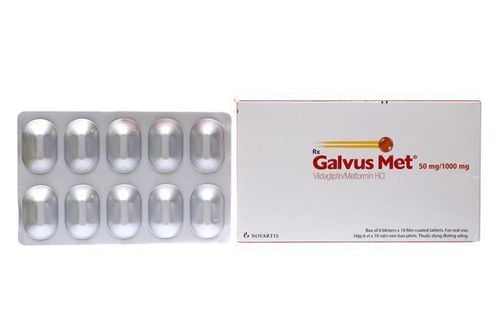Cheese belongs to the group of highly nutritious foods, its main components are protein, lipids, and calcium. These nutrients contribute to a healthy development of the body. However, although cheese has many advantages, is it really beneficial for children to consume it in large amounts? This article will explore this question further.
1. Cheese
Cheese is a dairy product made through milk concentration, resulting in high levels of protein, fat, and especially calcium. Hence, giving children cheese can be an effective way to supplement these nutrients. Moreover, cheese contains no lactose, making it suitable for children who are lactose intolerant, as it provides essential nutrition without causing digestive issues.
Despite its remarkable properties, parents should not rely solely on cheese for their child's diet while neglecting other food sources. A diet dominated by cheese could result in unbalanced nutrition, as cheese primarily contains protein, carbs, fat, and calcium, but lacks essential vitamins and minerals. Therefore, cheese should only serve as a snack or be combined with other foods, such as spreading it on bread or mixing it with porridge, to add energy and compensate for missing vitamins and minerals from other food groups.
Cheese and other dairy-based foods are excellent sources of calcium and protein. However, it is important to question whether there should be limits on how much cheese a child consumes.
The recommended quantity of cheese depends on the child’s age and weight. For children with excessive weight, adding cheese to their diet may not be necessary. Generally, children with normal development should consume only 1-2 portions of cheese per day.
So, is eating too much cheese good for children? It is not advisable to let children eat excessive amounts of cheese, especially for prolonged periods. Overconsumption may negatively impact their health. To meet daily calcium requirements, parents can also include other calcium-rich foods in the child’s diet, such as freshwater crabs or shrimp.

2. Common misconceptions about using cheese in children's diets
Many Vietnamese people believe that milk and dairy products, including cheese, are foods intended only for young children, the elderly, or the sick. However, this perspective differs from that in developed countries, where dairy products are encouraged for consumption to provide calcium and other essential nutrients.
Milk remains a more widely consumed dairy product among consumers, while cheese, on the other hand, is less popular. This can partly be attributed to the lack of habit in using cheese or a misunderstanding of its true nature. To clarify, cheese is derived from milk and concentrated, meaning that its nutrient content is highly dense, particularly in terms of protein, fat, and calcium. Additionally, cheese contains no lactose, making it a suitable substitute for milk for children who are lactose intolerant. Furthermore, cheese primarily contains casein, a type of protein that is easier for children to digest.
Many people worry that consuming too much cheese might lead to obesity. However, this concern lacks solid evidence. Cheese is classified as one of the most popular food groups in developed countries around the world. This food has been proven to be highly beneficial for health, providing essential nutrients like calcium, vitamin A, and B vitamins for the body. Moreover, cheese has a delightful flavor and can be used to create a wide variety of meals, adding richness to daily menus. Developing a habit of eating cheese can become an indispensable part of a healthy daily diet.
For individuals with obesity, reduced-fat cheese can be an alternative to provide adequate protein, calcium, minerals, and essential vitamins.
The calcium content in cheese is six times higher than that of milk, and it also contains vitamin D, which facilitates calcium absorption into the bones. Additionally, cheese contributes to oral health by creating an alkaline environment in the mouth, reducing acidity, and helping to prevent tooth decay.
3. Can eating too much cheese cause constipation in children?
Constipation is often diagnosed when children pass hard, painful stools or have difficulty defecating. Some children may pass stool less than three times a week, while others may pass small amounts frequently throughout the day.
Dietary experts suggest that overconsumption of cheese, bananas, rice, or milk can contribute to constipation, as these foods are low in fiber, water, and other fluids.
Other factors, such as stress, age, and behavior, can also play a role in causing constipation.
Experts note that children often withhold stool for various reasons, such as stress or discomfort when using the toilet.

To alleviate constipation caused by cheese consumption, it is crucial to ensure a balanced and healthy diet for the child. This approach supports their overall health:
Reduce potential causes of constipation due to cheese consumption. Nutritionists typically begin by evaluating the child’s diet, including the types and quantities of foods consumed. For instance, if a child consumes more than 340 grams of cheese daily, experts might recommend reducing this amount to 113-141 grams while limiting other dairy products.
Increase foods that combat constipation. Nutritionists advise incorporating more fiber-rich foods into the diet, such as vegetables, fruits (especially apples with skin), whole grains, legumes, and beans.
Identify and address other contributing factors. Consider medications or health conditions, such as irritable bowel syndrome, that might contribute to constipation. By doing so, experts can determine a suitable diet and address behavioral or environmental factors causing constipation.
Please dial HOTLINE for more information or register for an appointment HERE. Download MyVinmec app to make appointments faster and to manage your bookings easily.
Reference source: health.clevelandclinic.org
To arrange an appointment, please call HOTLINE or make your reservation directly HERE. You may also download the MyVinmec app to schedule appointments faster and manage your reservations more conveniently.








